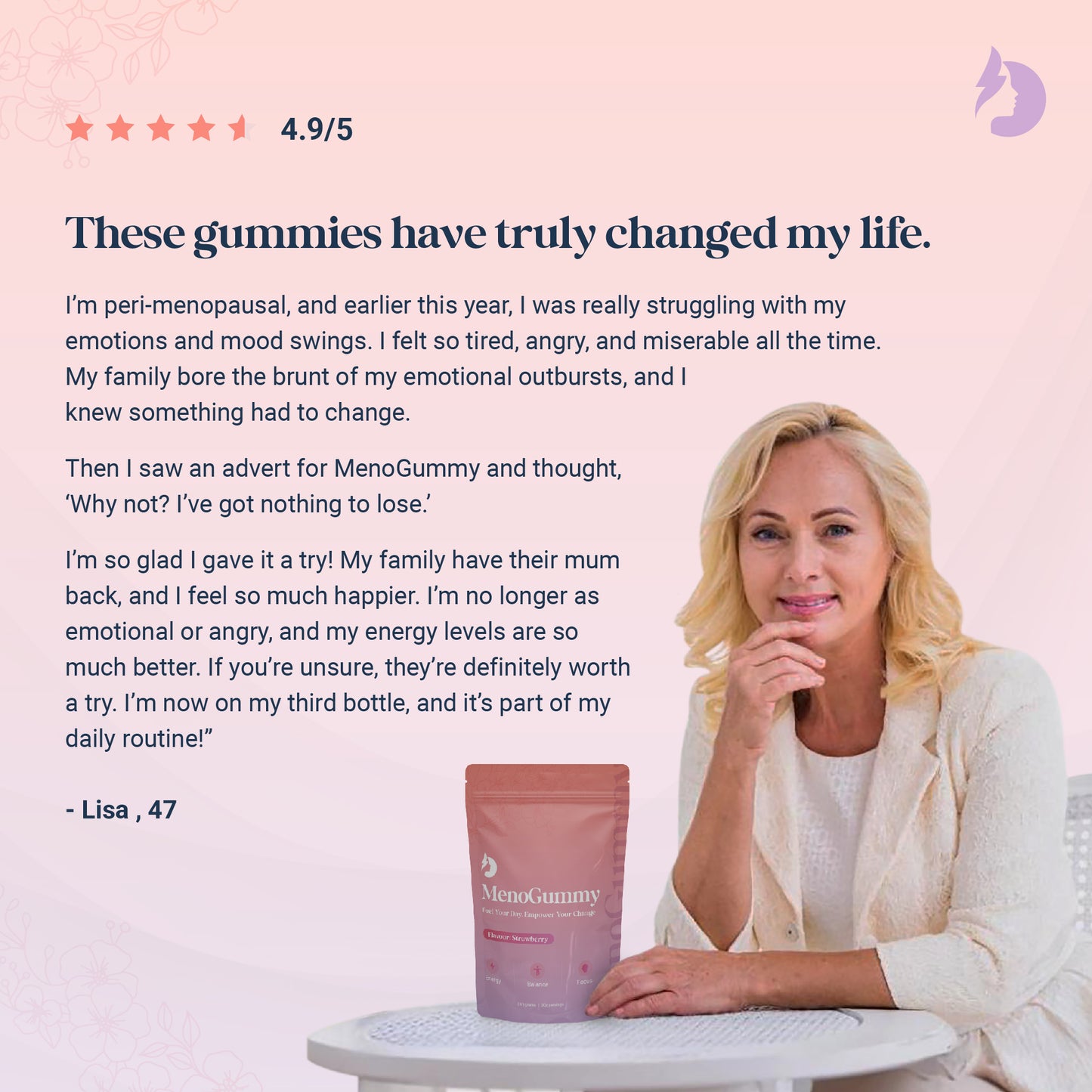
Top 6 Ingredients Proven to Support Menopausal Wellness
Share
Menopause is a significant life transition that comes with unique challenges, from hot flashes and mood swings to changes in sleep and bone health. While symptoms vary among women, certain natural ingredients have consistently demonstrated their ability to provide relief and support overall well-being. In this article, we’ll explore five key ingredients that are proven to support menopausal wellness and how they work.
1. Creatine
- What It Is: Creatine is a compound naturally found in muscle cells that helps produce energy during high-intensity exercise. It is also gaining attention for its potential benefits in supporting menopausal women.
- How It Helps: Research suggests that creatine can help maintain muscle mass, improve strength, and support cognitive function—all of which can decline during menopause. It also aids in energy production and overall physical performance.
- Where to Find It: Creatine can be taken as a standalone supplement in our easy to take MenoGummies.
Learn more about "Meno Gummies: A Hormone-Free Solution for Menopause Relief"
2. Ashwagandha
- What It Is: Ashwagandha is an adaptogen, a type of natural substance that helps the body manage stress.
- How It Helps: Menopause often brings emotional challenges, such as anxiety, irritability, and insomnia. Ashwagandha supports the body’s stress response, promoting relaxation and better sleep while stabilizing mood swings.
- Where to Find It: Ashwagandha is widely available both online and in physical stores.
Explore "The Science Behind Black Cohosh and Ashwagandha"
3. Chasteberry
- What It Is: Derived from the fruit of the chaste tree, this ingredient has been used for centuries to address hormonal imbalances.
- How It Helps: Chasteberry can alleviate symptoms like irritability, bloating, and breast tenderness by supporting the production of progesterone, a hormone that decreases during menopause.
- Where to Find It: Often included in natural menopause supplements, chasteberry is a gentle yet effective option for hormone-free symptom relief.
4. Vitamin D3
- What It Is: Vitamin D3, also known as the “sunshine vitamin,” plays a critical role in bone health.
- How It Helps: During menopause, declining estrogen levels can lead to bone density loss, increasing the risk of osteoporosis. Vitamin D3 helps the body absorb calcium and maintain strong bones.
- Where to Find It: While sunlight is the best natural source, supplements like Meno Gummies ensure you meet your daily needs, particularly during winter months or if you have limited sun exposure.
Read more in "Understanding Menopause: How Your Body Changes and What to Expect"
5. Black Cohosh
- What It Is: Black cohosh is a herb long used in traditional medicine to alleviate menopause symptoms.
- How It Helps: Studies have shown that black cohosh can reduce the frequency and severity of hot flashes and night sweats. It works by interacting with serotonin receptors, which play a role in regulating body temperature.
- Where to Find It: Black cohosh is widely available in both online and physical stores.
Explore "The Science Behind Black Cohosh and Ashwagandha"
6. Vitamin B6
- What It Is: Vitamin B6 is an essential nutrient that supports brain function and energy production.
- How It Helps: This vitamin plays a vital role in neurotransmitter production, helping to regulate mood and reduce feelings of fatigue. It’s particularly beneficial for managing irritability and low energy levels during menopause.
- Where to Find It: Look for supplements that combine vitamin B6 with other menopause-friendly ingredients for a well-rounded approach to symptom relief.
Why These Ingredients Work Best Together
Each of these ingredients addresses a specific aspect of menopausal wellness, from hormonal balance to mood regulation and bone health.
Explore "Natural Remedies for Managing Menopause Symptoms"
Final Thoughts
Navigating menopause doesn’t have to be overwhelming. By incorporating supplements with proven ingredients like creatine, black cohosh, ashwagandha, and vitamin D3 into your routine, you can address symptoms naturally and effectively. Remember, it’s always best to consult with a healthcare professional before starting any new supplement regimen.
For more tips on managing menopause, read our article on Natural Remedies for Managing Menopause Symptoms.












